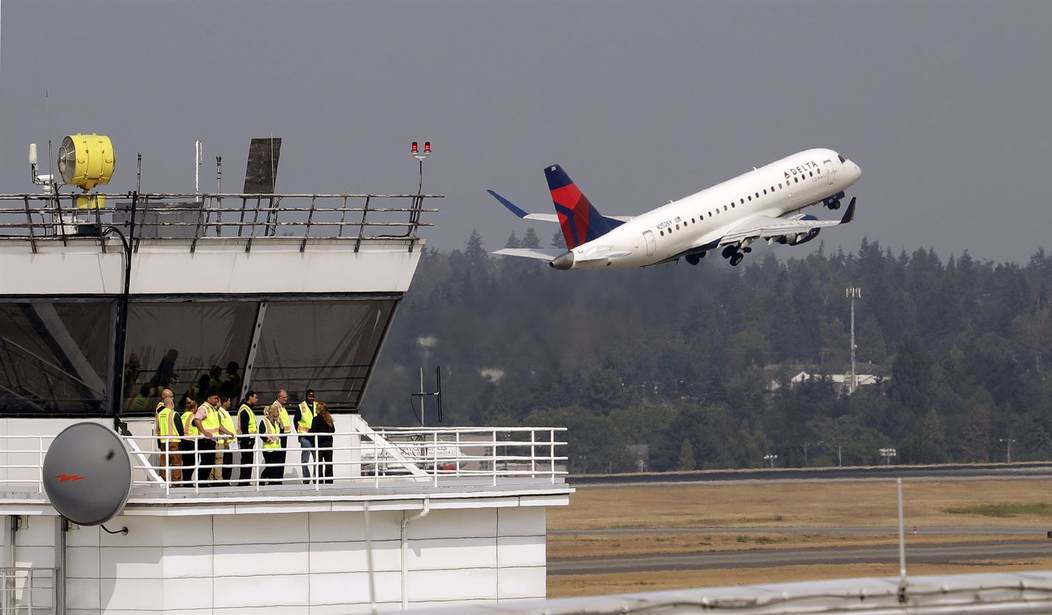COVID-19 has proven devastating to the economy with unprecedented and drastic measures including commercial travel restrictions and widespread, mandatory closures of restaurants and bars in many cities. With the U.S. stock market recording its sharpest drop in history, millions of people in the airline and hospitality industries face immediate unemployment while all seven major U.S. airlines may go bankrupt before the end of the year.
To deal with these challenges, conservatives have rightly advocated for lowering taxes and easing labor market regulations to ensure that the economy rebounds as quickly as possible. But, while leading conservatives’ suggestions are reasonable and essential for long-run growth, these broad-based proposals are of little comfort to the businesses that will have closed their doors by the time the policies are enacted.
In addressing any sort of appropriate response to the crisis, policymakers must understand that this current downturn is particularly unique given the role of emergency government measures in curtailing private property rights.
Private property rights comprise the cornerstone of any modern economy and have led to an unprecedented boon in prosperity and economic growth. Countries with high degrees of property rights protection (physical and intellectual) have sixteen times the income of countries which disregard them. Legally protected property rights are the “key source of the developed world’s prosperity, and the lack thereof is the reason why many nations remain mired in poverty.” So foundational is this principle to the U.S. that the Constitution specifically states that the government should provide “just compensation” in exceptional cases that warrant the seizure of private property.
The implications of these protections extend significantly further than the direct confiscation of private property by governments. Regulations effectively banning either an individual or company from utilizing their private property are (for all intents and purposes) identical to the government seizing a good. In other words, a “regulatory taking” is no different in outcome than a direct one.
Recommended
Despite governments or courts regularly dishonoring these protections, free market activists have consistently argued for the idea of “regulatory compensation” for cases when regulation diminishes the value of property.
Enter the U.S. airline industry. American carriers, which employ 750,000 people, and indirectly support ten million jobs, are facing bankruptcy as a direct result of government actions grounding most of the fleets. As a result, it is only logical that some degree of recompense be provided as a result of this “taking.” To do so is not a handout, rather, it is the rightful restitution for a taking by the government.
Of course, direct grants are rarely the best way to address these issues and taxpayer rights must also be protected. Interest-free loans provide a less expensive alternative to ensure short-term liquidity. An immediate repeal on excise taxes on air carriers (including taxes on tickets, cargo and fuel) would also help in allowing carriers to survive the coming six months.
Other policy outcomes, such as reforming antiquated labor market laws, would allow for a more efficient workforce. The airline industry is one of the most heavily unionized in the country.
Even prior to the crisis, byzantine labor market restrictions led to costly, protracted court fights between airlines and unions, as well as thousands of flight delays and cancellations.
Similar principles apply to the hospitality industry and other businesses affected by the pandemic. Waiving taxes would help make up for lost revenues while suspending the federal minimum wage would ensure that establishments hovering on the margin of bankruptcy would be able to re-open their doors and keep millions of Americans on payroll.
The unique nature of the coronavirus catastrophe does not require abandoning fiscally conservative principles and giving away hard-earned taxpayer dollars to any and all industries. But when the federal government seizes private property, whether directly or indirectly, it has an obligation to act appropriately to make property owners whole.
Tim Andrews is the Executive Director of the Taxpayers Protection Alliance.
























Join the conversation as a VIP Member